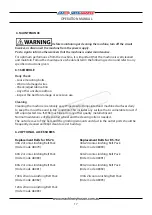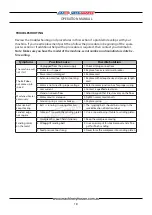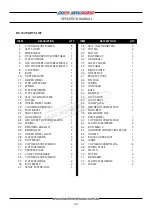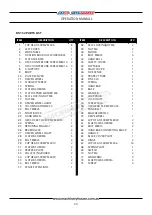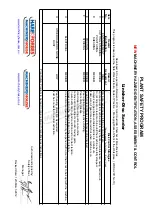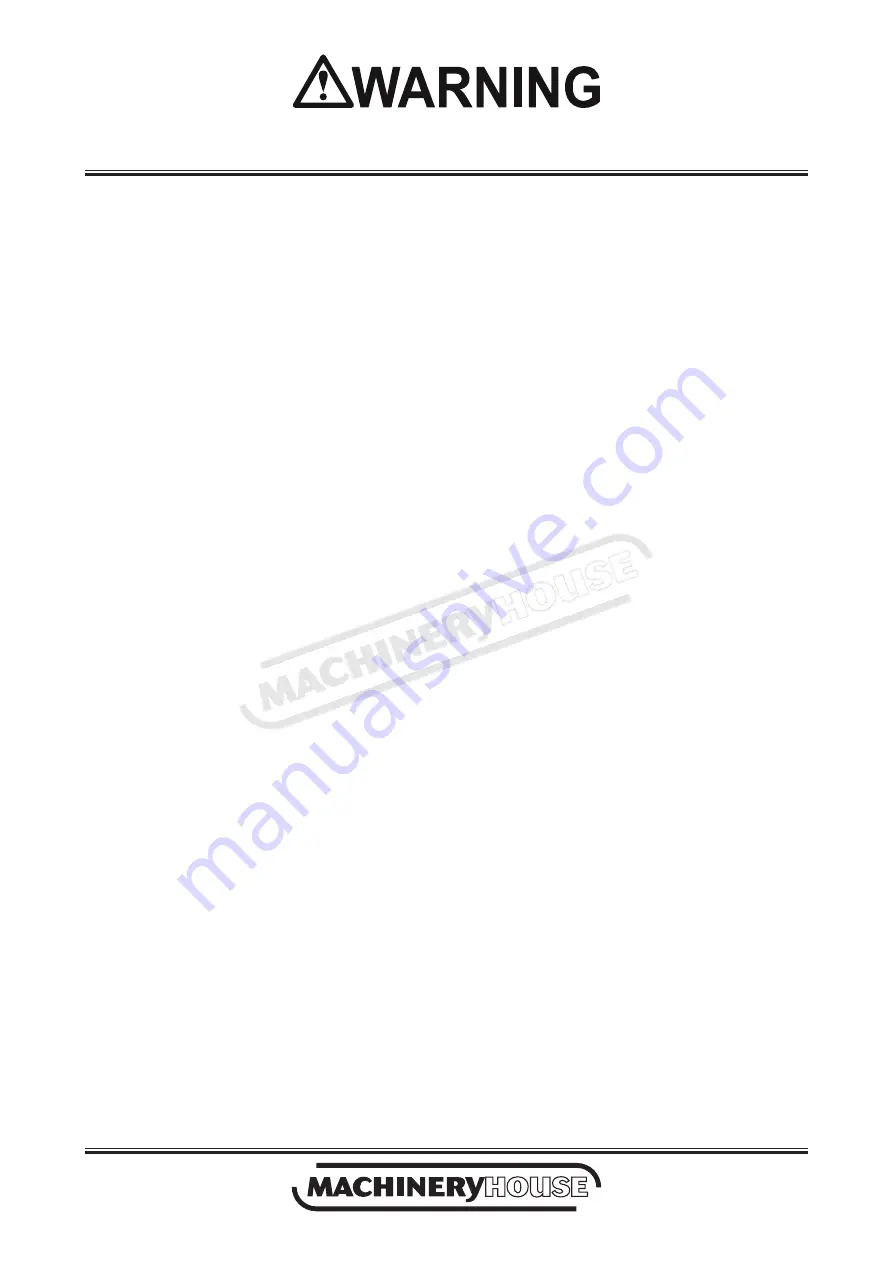
Linisher/Disc Sander Safety Instructions
1. Maintenance.
Make sure the sander is turned
off and disconnect from the main power supply
and make sure all moving parts have come to a
complete stop before any inspection, adjustment or
maintenance is carried out.
2. Sander Condition.
Sander must be maintained for
a proper working condition. Never operate a sander
that has damaged or worn parts. Scheduled routine
maintenance should performed on a scheduled
basis.
3. Disc/Belt Condition.
Never operate a sander with
a damaged or badly worn disc or belt. Replace if
required.
4. Disc/Belt Rotation.
Be aware of the Disc and Belt
rotation when sanding.
5. Hand Hazard.
Keep hands and fingers clear from
moving parts. Serious injury can occur.
6. Leaving a sander Unattended.
Always turn the
sander off and make sure all moving parts have
come to a complete stop before leaving the sander.
Do not leave sander running unattended for any
reason.
7. Avoiding Entanglement.
Sander guards must be
used at all times. Remove loose clothing, belts, or
jewelry items. Never wear gloves while machine is
in operation. Tie up long hair and use the correct
hair nets to avoid any entanglement with the sander
moving parts.
8. Understand the machines controls.
Make sure you
understand the use and operation of all controls.
9. Power outage.
In the event of a power failure during
use of the Linisher, turn off all switches to avoid
possible sudden start up once power is restored.
10. Work area hazards.
Keep the area around the
sander clean from oil, tools, chips. Pay attention to
other persons in the area and know what is going
on around the area to ensure unintended accidents.
11. Workpiece Handling.
Never hold small workpieces
with your fingers during a cut. Always support/feed
the workpiece with push stick, table support, vice,
or some sort of clamping fixture.
12. Hearing protection and hazards.
Always wear
hearing protection as noise generated from sander
and workpiece vibration can cause permanent
hearing loss over time.
13. Dust hazards.
Always wear dust mask or respirator
and eye protection when sanding. Use a dust
collector as well to keep dust to a minimum.
14. Feeding material.
Always feed material evenly and
smoothly against the direction of rotation. Never
use excessive force when sanding or serious injury
can occur.
15. Job Material.
Check material prior to sanding for
nails, staple and other objects that make cause any
danger when sanding.
16. Starting position/speed.
Never turn the sander
on when the workpiece is resting on the disc or
belt. Allow disc and belt to reach full speed before
sanding.
17. Disc sanding.
Keep workpiece down toward the
table whilst sanding. Workpiece may cause serious
injury if not held correctly.
18. Guards.
Do not operate sander without the correct
guards in place.
19. Stopping the Disc/Belt.
Do not stop or slow the
Disc or Belt with your hand or workpiece. Allow the
machine to stop on its own.
20. Wood dust may cause allergic reactions.
Make
sure you know what type of dust you are exposed
to as it may cause you an allergic reaction. Always
wear an approved respirator.
21. Call for help.
If at any time you experience
difficulties, stop the machine and call you nearest
branch service department for help.
Machinery House
requires you to read this entire Manual before using this machine.






